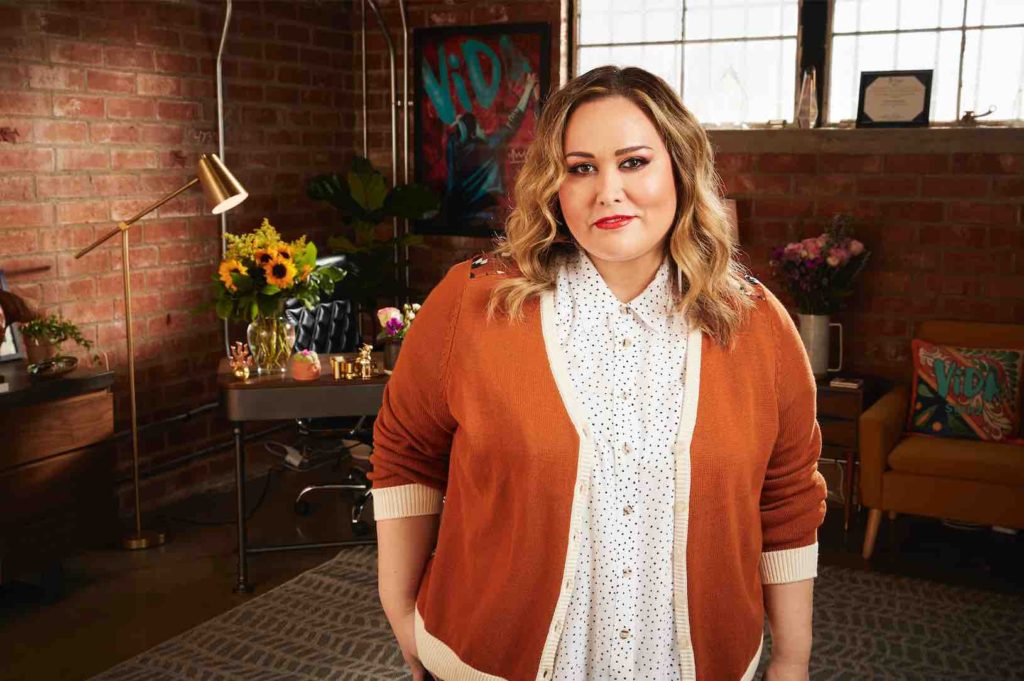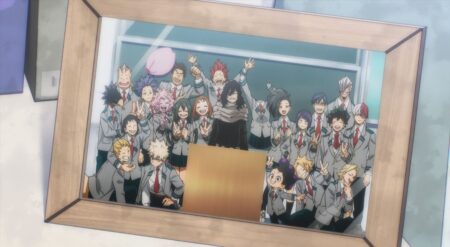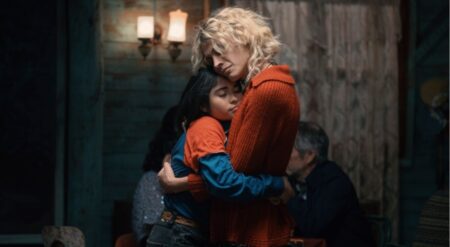STARZ’s original series Vida, created by Tanya Saracho, has been groundbreaking. Set in East Los Angeles, the series is centered on two sisters, Emma and Lyn Hernandez who move back to the city after their mother dies. The sisters have lived apart in affluent neighborhoods, making their return less welcoming. When they take over their mother’s bar, they’re confronted with issues of identity, history, and more as they navigate their new lives.
Now in its third and final season, the series has showcased the vibrancy and beauty of Mexican American life by showcasing our daily lives and removing the harmful stereotypes often associated with the community on screen. But while it’s beautiful to see a show filled with a brown cast, written and directed by brown and queer creatives, especially women, that beauty has an authenticity that showcases the uglier sides of the culture. Saracho has not shied away from discussing the culturally normalized anti-Blackness, homophobia, and sexism within the community, and it’s because of this that she’s created a series that does more than put a story on screen, but also reflects an authentic experience.
We had the chance to speak with Saracho by phone call about Vida, their identity, and why showcasing an authentic and emotional story was paramount for her.
BUT WHY THO: It’s so great to meet you via voice.
TANYA SARACHO: It’s our new normal now, our new reality.
BUT WHY THO: I love Vida, I’ve watched it through three times now and it’s a show that I hadn’t really reviewed or talked about a lot because it’s a show that was really personal to me watching the story that you brought to life. One of those reasons is because you showcased the beauty and vibrancy of our community but you also showed those deep dark issues that we try to hide a lot of the time. What drove you to find this balance and really show the Latinx/Chicanx community in the way that it is, good and bad?
TANYA SARACHO: I think the key was that I was building it, in a room of full of Latinx who were building it. There was never going to be a false note. It was going to be true to somebody in there, even if it wasn’t going to be true to everybody, you know? Not everyone in the room was queer, but half of it was. Not everyone was Mexican, but we were all Latinx and we have shared histories, cultures, and traditions. I feel like it was always going to be more true to life and authentic – and detailed – that, we weren’t going to escape. We weren’t going to let each other do that – you know, the room full of Latinx, I think that’s the main reason.
BUT WHY THO: How does it feel to be this voice, this force, behind one of the very few Latinx shows that depicts us being us? How does it feel to be that type of storyteller in a landscape that stereotypes or doesn’t include us at all?
TANYA SARACHO: It’s so funny because that perception of me happened when I wasn’t looking – when I was building the show. I was a playwright and I was writing like this back then, plays about us, stories about us, complicated but simple reality-to-me stories. Then, someone gave me a shot, a woman named Marta Fernandez, so like, that tells you the whole story – why I got the shot, y’know?
So, I get the shot and STARZ lets me tell the story the way that I wanted to tell it without ever getting in the way ever. Seriously, they were great co-parents. And I wanted to tell [this story] with all Latinx directors, all Latinx writers’ room, a Latina cinematographer – so we had to go find her, all of it, I was given permission. So that, being given that license, it gave me agency. I just told a story as authentically as I could. There was no design, I had only been here three years when I got this assignment and now, four years later, I’m coming out like; I can build a show? I built this show? It’s crazy that I have that knowledge now, that experience. They’ve empowered this queer Latina to hopefully maybe tell another story.
When I did start four years ago, they kept saying: What do you think of the field? You know, the lack of representation, and I was like I can count with the fingers of one hand the amount of Latinx themed shows that we have. Now, I need more than two hands. I feel like now, we’re taking so many steps forward. I don’t want to canta victoria because we’re not there. Because we’ve been kept away from the larger narrative of this country, there are so many stories yet to tell, and that we owe the telling of. I’m just excited to say I can’t say “fingers of one hand” it would have to be three hands. I hope we talk again in four years to see where we’re at.
Do we have a Latinx themed genre show? Do we have a bunch of YA stuff? Do we have historical dramas? I want it all!

BUT WHY THO: One of the things that Vida for me hit, was it’s deep impact on me. Were you surprised to have the impact that Vida has on its fans? I loved to see Twitter light up on Sunday nights when a new episode would drop. Did you see it being this loved and this impactful for people?
TANYA SARACHO: I was struck by the conversations, and especially Latinx queers, who would come up to me when they saw themselves represented when they never had before. Especially in that first season. Eddy had a big impact on a lot of people. Emma, her type of queerness, the way she is. But also with the Latinidad, the way we were portraying it: las pochas. And lots of pochas stood and up and were like “I’m a pocha! I’m a pocho! I’m a pochx!” Because there is shame around that.
The markers of Latinidad used to be religion, language, nationality, right? And everything that comes with that, traditionalism and all that. But, fuck that, we don’t have those markers anymore. Latinidad keeps being redefined and this show redefines it a little bit.
This is a TV show about two Americans. Two American sisters. Yes, they’re hyphenated, but this is what America looks like. y’know? This is what being American looks like. We can’t forget that. Eddy is an American. Mari is an American. These four women are American. And it defines that in a way that a lot of second, third, fourth generation Latinx feel. They’re living that reality. The no-Spanish speaking, non-Catholic growing up, y’know, living reality.
BUT WHY THO: I think that’s why this show spoke to me so much, because that’s me. My family has been in San Antonio since before anyone can remember, I don’t speak Spanish –
TANYA SARACHO: – I know you! I grew up in McAllen. I am Mexican from Mexico, so I hopped on over to McAllan, that’s where I went to Junior High and high school but I grew up with you basically! There are three types of people who lived in McAllen. There are white Americans, Mexican Americans, and Mexicans who just got there. Border life is so interesting because you all just cohabitate and just live. Then, the further away you get from the border, the divisions grow, I feel like.
BUT WHY THO: My final question is just digging into that, and you kind of answered since you’re from McAllen – we’re different types of being –
TANYA SARACHO: – Hybridity! We’re hybrid identities, yeah.
BUT WHY THO: Emma has this very specific identity where she loves her culture, she loves her neighborhood, she loves the people there, but they don’t always love her.
TANYA SARACHO: They did not love her, but you know what, watch all three seasons and they did love her, that’s what it turns out. First season, her mother had sent her away. She thinks that she got sent away because she was queer. She got ousted, exiled. Now, we see the growth that she was being protected because her mother understood those biases. You’ve seen the third season?
BUT WHY THO: Yes!
TANYA SARACHO: And now you see the dad in action, especially in the last episode. And oh girl, when we shot that – I’m getting the chills – when we shot that…there are a lot of queers on my set. When we shot that, in that room, we were all shaking, because we had had an experience with that in some form or another. It was traditionalism and religion at its most dangerous feeling. So I love that with Emma, we get to see that she was always being protected. I mean she did get sent to South Texas with her grandma so that’s not too bad.
BUT WHY THO: Thank you so much for talking with me Tanya and bringing this show into the world.
TANYA SARACHO: I hope people catch up and watch it this season!
Vida has hit me like no other series has, even those that also represent my identity like On My Block or Gentefied. Saracho’s unique perspective on understanding identity in Mexican communities and the complexity of being Mexican-American has created a series that I see myself in. Additionally, she has been able to build the conversation about some of the deeper issues that take place in our community. Saracho has broken new ground to show us the way we deserve to be shown and I can’t wait to see what she does next.
New episodes of Vida are Sunday, at 9:00 PM PT/ ET on STARZ and the STARZ App.
Need a STARZ subscription? Grab one using our affiliate link!







